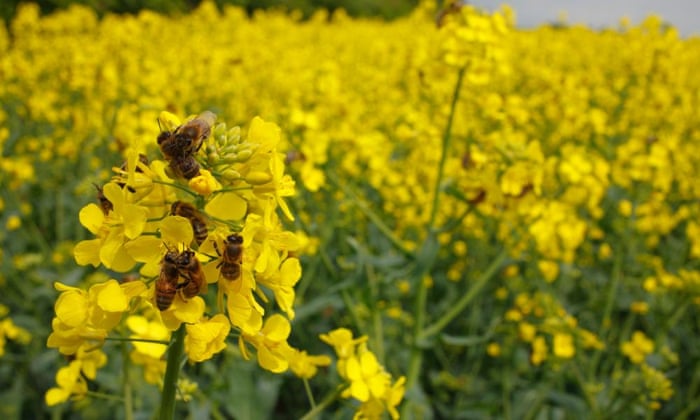New study by European Food and Safety Authority finds ‘high risk’ to bees from neonicotinoid pesticide sprays prompting calls for extending ban

Three pesticides banned in Europe for their potential to damage bee populations could pose an even greater threat than was thought, according to a new assessment by the European Food Safety Authority (Efsa).
Already proscribed for seed treatments and soil applications, the Efsa analysis says that clothianidin, imidacloprid and thiamethoxam also pose a ‘high risk’ to bees when sprayed on leaves.
The UK is currently facing a legal challenge to an emergency exemption it granted, allowing use of two of the substances, after protests by the National Farmers Union.
But far from supporting the British case, the advisory expert assessment will add to pressure for an extension of the ban to apply to fruit orchards after blooming, and crops gown in greenhouses, Greenpeace says.
“The commission should expand the EU-wide ban to cover all uses of neonicotinoids on all crops, and end the self-service approach to derogations. Viable non-chemical alternatives exist and the EU should encourage farmers to use them,” said the group’s agriculture policy director, Marco Contiero.
Read more here.


















